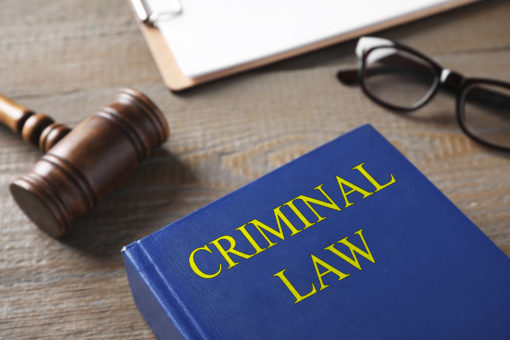 Although state criminal laws are implemented to prosecute the bulk of crimes perpetrated in the United States, federal law is used to prosecute offenses that happen at the federal level. Despite a number of notable differences between the state and federal criminal court systems, there are also some parallels.
Although state criminal laws are implemented to prosecute the bulk of crimes perpetrated in the United States, federal law is used to prosecute offenses that happen at the federal level. Despite a number of notable differences between the state and federal criminal court systems, there are also some parallels.
You should familiarize yourself with the specifics of the federal process if you are fighting federal charges so that you will know what to expect at each stage. Having a criminal defense attorney with you at every stage of the process is critical for a successful trial. Call Chambers Law Firm at 714-760-4088 to schedule a free consultation or fill out a quick form online.
The following are the fundamental elements of criminal procedure in the federal criminal justice system.
- Investigation begins
- If charges are filed
- The arraignment process
- Discovery
- The hearing procedural
- Pre-trial motions
- The trial
- Post-trial motions
- The sentencing
- The process of appeals begins
The federal criminal process begins with an investigation into a suspected crime. Two of the government investigative (FBI and DEA) agencies are tasked with obtaining and providing information to the United States Attorneys. Investigators at these agencies inquire into crimes and compile data with the goal of making an arrest, sometimes executing search warrants. In some cases, an arrest may be made before the investigation is finished. Your criminal defense attorney is there to ensure no evidence is being gathered illegally.
If a grand jury comes to the conclusion that there is probable cause to believe the suspect committed a crime, they will issue an indictment. An indictment serves as both a formal notice that the government intends to press charges against the defendant and a summary of the charges against him. At this point, the majority of defendants choose to retain a criminal defense attorney.
Following being arrested and charged with a crime, the defendant is usually taken before the court for the case’s initial hearing the next day or the day after. During this hearing, the defendant is informed in further detail about the accusations made against him, and the judge then makes the decision as to whether to keep the defendant in jail or grant him bail pending the conclusion of the trial. A plea of guilty or not guilty will also be requested of the defendant at the arraignment.
Prior to the start of the trial, the prosecution and defense must both prepare their cases. Each side will investigate the case’s facts by reviewing any related reports and contacting any potential witnesses. The prosecutor then has to provide the defendant and his defense team with copies of any papers and evidence the prosecution plans to use in court, including any that might help the defendant prove his innocence. This procedure is referred to as “discovery.”
If the defendant files a plea of not guilty, the prosecution must present enough proof to move on with a preliminary hearing. If the court determines that there is enough probable cause to believe that the defendant committed a crime, a trial will be scheduled.
Pre-trial motions are routinely filed by the prosecutor or defense attorney before the trial starts. They are requests submitted to the court for the court to make a decision on a specific issue before the trial.
The trial may get underway right away or months later, depending on how complex the case is. After hearing witness testimony, evidence from the prosecution, and arguments from the defense attorneys, the jury decides whether the defendant is guilty or innocent of the accusations. Only if all members of the jury agree may the defendant be found guilty in federal criminal proceedings.
If the defendant is found guilty during the trial, there are still a variety of motions that can be filed afterward. Some examples of these are a motion for a new trial, a motion for an acquittal ruling, or a motion to dismiss, set aside, or correct a verdict.
The defendant is required to make a second court appearance for the punishment hearing if found guilty at trial. Despite the fact that Congress has established minimum and maximum sentences for a number of federal offenses, including some drug-related offenses, the court’s decision on the sentence for a federal felony depends heavily on the specifics of the crime and its seriousness.
The defendant always has options even if they are convicted of a federal crime. They may still appeal their case to a U.S. court of appeals if they believe their conviction was unjustified or that the punishment they received was too severe. On appeal, the defendant may raise issues or correct errors that may have occurred during the trial, such as incorrect decisions made by the judge. Chambers Law Firm has plentiful experience with Appeals and will continue to give you the best defense possible.
Call 714-760-4088 today if you are being charged with a federal crime to have the best defense attorney represent your case.




